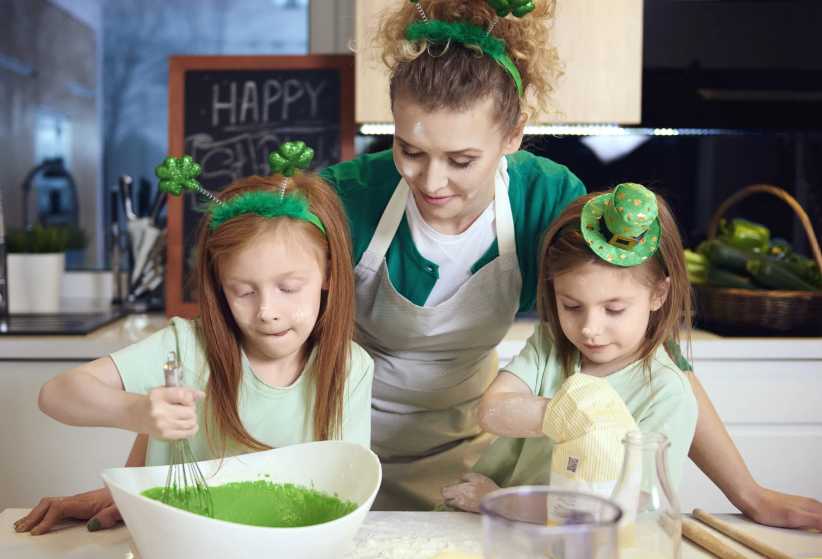You don’t want to hurt Grandma’s feelings, do you? She always makes this for us at holiday time.”
Maybe it’s Grandma, or maybe it’s an aunt, uncle, or cousin. Have you found yourself saying this when your child is offered a holiday food item he or she has never seen or tasted before?
Whether you’re celebrating Christmas, Ramadan, Hanukkah, or another winter holiday, not only are you faced with the stresses of the season, you’re also trying to teach your children good manners and exposing them to your family traditions.
Many kids automatically shut down when they’re faced with eating something that is unfamiliar. And it can be embarrassing when you’re aware of how much time and energy the preparer has spent on the dish. This is true especially when the food has been passed down through the generations in your family.
The problem is food neophobia, or a fear of a new food. Of course, it occurs year round and not just during the holidays. But food neophobia usually occurs when you’re alone with your child. Emotions aren’t running so high. And the rejection of a new food isn’t out in the open with people staring.
Experts agree it’s unwise to pressure your child to sample a food, even if the preparer’s feelings might be hurt. Faye Berger Mitchell, a private practice dietitian and nutritionist in Potomac, Md., gives these tips:
Share memories about the food. Tell stories about family and childhood memories of how delicious and special these holiday favorites were. If there is a symbolic meaning to the food, explain the connection to pique your child’s interest. For example, potato latkes, fried potato pancakes, are a traditional Hanukkah food. Foods fried in oil represent the oil that miraculously lasted for eight days.
Have your kids help make special holiday favorites. When they are involved in the process and see you cooking with love, they are more likely to want to taste the finished product.
Serve it alongside foods they love. Place a small amount on their plate along with several foods you know they enjoy. Make sure there are some familiar foods at the holiday meal along with the holiday favorites.
Remember that it’s important to introduce your child to new foods on a regular basis. This helps him obtain a variety of nutrients. It’s also a way for him to discover new tastes and textures.
What if your child absolutely refuses the food?
“Never force, cajole, or bribe. If a child does not want to try it, respect that and do not make a big deal about it,” advises Berger Mitchell. “The more you try, the more they will resist. Sometimes it takes as many as 10 exposures to a food for some kids to try it.”
Eating the right foods is important, but it may be a better idea to encourage the kids to taste your aunt’s ethnic favorites next year or even after the holidays when everyone is calmer and there’s less stress all the way around.
“Your kids may not like the same foods as you, and that is OK. We all have different food preferences and some people are more selective eaters. Continue to make your traditional holiday favorites and enjoy your holidays,” adds Berger Mitchell.
Finally, make sure everyone obtains enough sleep and maybe gets a little extra. This can help mitigate meltdowns and temper tantrums.
Remember to keep the focus on what holiday gatherings are all about: Reconnecting with family and friends and sharing the love you have for one another, even if you only see each other a few times each year.
Christine Palumbo is a Illinois-registered dietitian nutritionist and Fellow of the American Academy of Nutrition and Dietetics. She is a 2018 recipient of the Medallion Award from the Academy of Nutrition and Dietetics. Follow her on Twitter @PalumboRD, Facebook at Christine Palumbo Nutrition, or Chris























